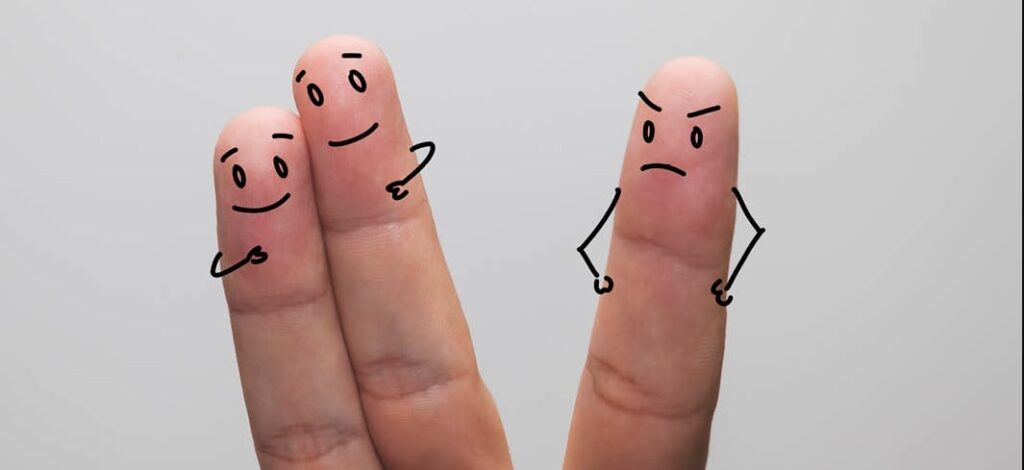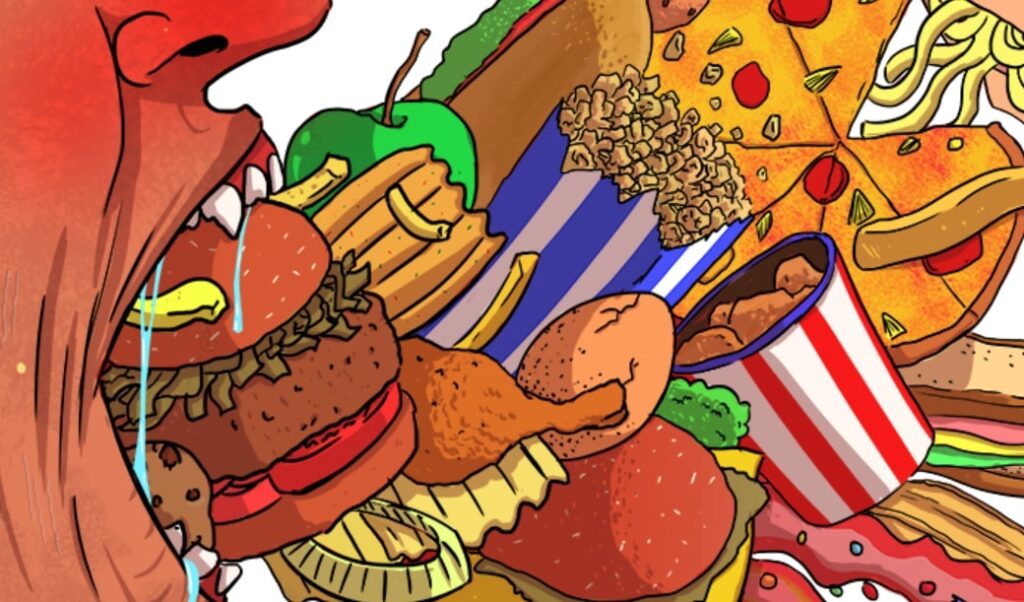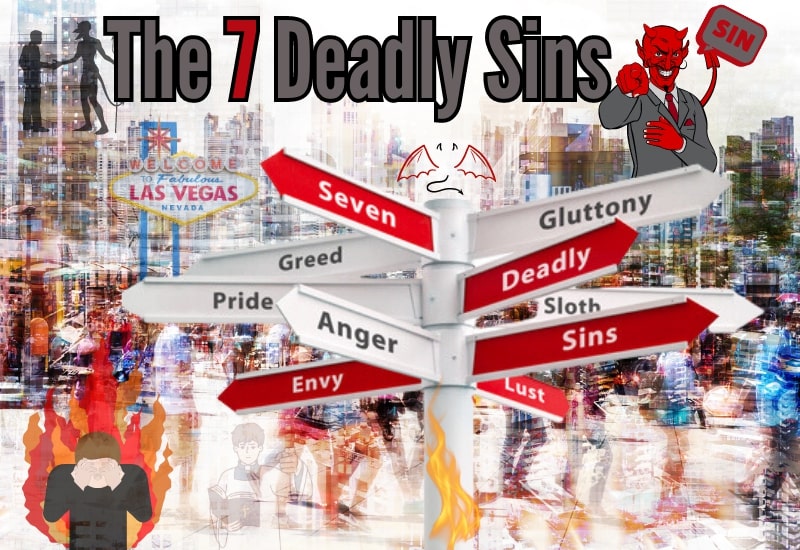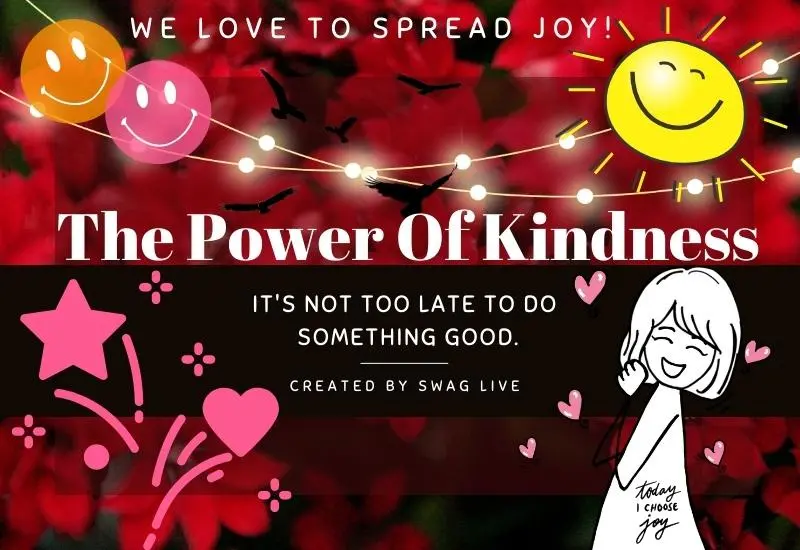Ah, the infamous 7 deadly sins – they’re like the ultimate lineup of human missteps according to Christian teachings. Imagine them as those villainous traits that just can’t resist crashing the moral party. Picture this: pride, greed, wrath, envy, lust, gluttony, and sloth, each one a charismatic troublemaker on its own. These sins aren’t just your everyday oopsies; they’re like turbocharged versions of our natural human tendencies. For instance, think of gluttony as that moment when your appetite shouts “seconds!” but you’re already full – it’s your cravings gone wild. Guess what?
These 7 bad boys got their spotlight in the early 600s, thanks to the one and only Pope Gregory I. He took cues from the Desert Fathers, those cool Christian monks who ditched the bustling city life for some quality alone time in the desert. According to them, these 7 deadly sins were like the root of all evil – the ultimate villains that could drag you into a moral abyss.
We all deal with the 7 Deadly Sins
What are the 7 Deadly Sins?
Alright, imagine this: a lineup of the naughtiest, most mischievous traits that can tickle the fancy of even the best of us. Yep, we’re diving into the world of the 7 deadly sins – those sassy vices that have been causing a ruckus in the moral realm for ages. Think of them as the A-list of bad behaviors, the ultimate party crashers in the realm of virtues. We’re talking about pride, greed, wrath, envy, lust, gluttony, and sloth – each one with its own devilish charm. Get ready to meet these troublemakers and uncover why they’ve been the talk of the town for centuries. So, buckle up, because we’re about to take a wild ride through the realm of human nature gone slightly awry! Here is a brief overview of each of the 7 deadly sins:
(1) Pride is the excessive love of oneself
Let’s kick things off with the OG of the 7 deadly sins – Pride. This one’s a bit like that flashy friend who just can’t stop bragging. You know the type: they strut around with an air of superiority, and their ego might just need its own postcode. Pride is like the sneaky seed that grows into a whole jungle of other sins. It’s the catalyst for arrogance, that sense of “I’m better than you” that could make even a peacock blush.
Picture this: Pride can make a person believe they’re on a celestial level while the rest of us mere mortals are down here on Earth. It’s like being caught in a one-way mirror where your reflection is an all-encompassing ego. But hey, it’s not just one flavor of pride; it comes in all shapes and sizes.
- Boasting about our accomplishments: We may take credit for things that we didn’t do, or we may exaggerate our abilities.
- Putting others down: We may belittle others’ accomplishments, or we may make them feel inferior to us.
- Believing that we are better than others: We may think that we are more intelligent, more attractive, or more deserving of success than others.
- Refusing to admit our mistakes: We may be unwilling to admit when we are wrong, or we may make excuses for our behavior.
- Being self-centered: We may only care about our own needs and wants, and we may not be concerned about the needs of others.
Let’s talk about Pride, shall we? This not-so-friendly fellow has a knack for barging into our lives like an uninvited guest. And oh boy, does it wreak havoc! We’re talking about relationships taking a hit, our work suffering a blow, and that overall happiness? Poof, gone like a magician’s trick.

Ever had that feeling of being on an isolated island, with only your ego as company? That’s Pride waving its flag. It’s like building a fortress around yourself – sure, it might feel safe for a while, but trust me, it gets pretty lonely in there. But wait, there’s more! Pride’s mischief doesn’t stop at isolation; it’s got a knack for blurring our judgment. So, decisions that seem like pure genius at the time? Well, they might turn into “what-was-I-thinking” moments pretty darn fast. Overcoming Pride is like a workout for your soul. It’s a journey, and you’re not alone on it. Ready for the challenge?
- Practice humility: Remember that we are not better than anyone else, and that we all have our own unique gifts and talents.
- Be grateful: Appreciate the good things in our lives, and be thankful for the people who have helped us along the way.
- Serve others: Help others in need, and put their needs before our own.
- Be humble in our successes: Don’t take credit for things that we didn’t do, and be willing to share the spotlight with others.
- Be open to feedback: Listen to what others have to say, and be willing to learn from our mistakes.
Pride, the crème de la crème of sins, stands tall as the mother of them all. C.S. Lewis called it the “anti-God” state – where ego clashes with divinity. It’s the devil’s prized trait and the very essence of separation from God’s grace. Pride’s a chameleon, appearing for different reasons. Ichabod Spencer warned of spiritual pride as the devil’s trickiest snare. Jonathan Edwards revealed it as the hidden core of Satan’s arsenal, even disguising itself as humility. Today, “Pride goes before a fall” rings true, cautioning against arrogance-induced folly. In politics, “hubris” labels leaders who lose grip on reality due to unchecked power, yielding impulsive decisions.
(2) Greed is the desire for possessions
Let’s dive into the second installment of our lineup of the 7 deadly sins – meet Greed. Think of it as that insatiable urge for more, more, more! You know the feeling: like when you see something shiny and just can’t resist making it yours.
If generosity had a mortal enemy, Greed would be it. While generosity’s all about sharing the love, Greed’s busy counting its stash of goodies. It’s like a tug-of-war between “let’s give” and “let’s take.” But Greed isn’t a one-size-fits-all deal; it’s got an entire wardrobe of disguises. From hoarding to being that “gimme, gimme” person, it’s versatile in its antics.
So, buckle up, because we’re about to explore the glitzy and sometimes not-so-glamorous world of Greed.
- Hoarding material possessions: We may keep things that we don’t need or use, even if they are valuable.
- Being obsessed with wealth and status: We may constantly strive to acquire more money and possessions, even if it means taking advantage of others.
- Being unwilling to share our resources: We may be stingy with our time, money, or possessions, even if it would help others.
- Being envious of others’ possessions: We may feel resentful or angry when others have more than we do.
- Being willing to do anything to get what we want: We may lie, cheat, or steal in order to acquire material possessions.

Let’s talk about Greed for a moment, one of the 7 deadly sins we all deal with from time to time – that itch for more that can sometimes get the best of us. It’s like that sneaky whisper in our ear that says, “You need more, and you need it now!” But here’s the thing – Greed’s not just a lone troublemaker; it’s got a whole entourage of negative effects.
Ever felt like you’re stranded on an island, surrounded by all your stuff but still feeling empty? Yep, that’s Greed’s trickery at play. It’s like the more we chase after, the lonelier we become.
But chin up, because overcoming Greed is totally doable. Think of gratitude as your trusty sidekick – reminding you that what you have is pretty darn amazing. Generosity? It’s like the antidote, turning our “mine, mine, mine” mindset into “ours.” And mindfulness? Well, that’s your secret weapon against Greed’s sneaky tactics. So, if you’re up for the challenge, we’ve got a playbook to help you beat Greed at its own game.
- Practice gratitude: Appreciate the good things in our lives, and be thankful for what we already have.
- Be generous: Share our time, money, and possessions with others.
- Be mindful of our wants and needs: Ask ourselves if we really need something before we buy it.
- Be content with what we have: Remember that happiness does not come from material possessions.
- Be compassionate for others: Put ourselves in the shoes of others and try to understand their needs.
Avarice, in Henry Edward’s words, sinks a person into the worldly abyss, making it their god. Beyond Christian contexts, greed reflects an excessive urge to amass more than necessary, particularly concerning material wealth. Aquinas, like with pride, acknowledges its potential to foster wrongdoing.
(3) Wrath is anger that is out of control
Alright, let’s talk about Wrath – the hot-headed troublemaker among the 7 deadly sins. Imagine it as that moment when your anger takes the wheel and goes on a joyride, consequences be darned! Wrath’s like that wild storm – it’s not just anger; it’s anger cranked up to eleven.
And guess what? Wrath’s all about stirring up trouble. It’s like that villain who spreads not just anger, but violence and destruction, too. It’s like having a fire-breathing dragon inside you, ready to burn everything down. Ever met someone who explodes at the slightest inconvenience? That’s Wrath showing its true colors. It’s like patience is a foreign concept, and waiting for justice? Nah, it’s more about immediate revenge. But Wrath doesn’t play by one set of rules; it’s a master of disguises.
- Feeling angry or furious: We may feel an intense rage that is difficult to control.
- Saying or doing things that we later regret: We may say or do things that are hurtful or destructive in the heat of the moment.
- Seeking revenge: We may want to get even with someone who has wronged us, even if it means hurting them in return.
- Holding onto grudges: We may continue to feel angry or resentful towards someone, even after they have apologized or made amends.
- Being violent: We may lash out physically or verbally, or we may even commit acts of violence.
Let’s talk about Wrath – One of the 7 Deadly Sins that can change your life for the worse! That fiery emotion that can really throw a wrench in the works of life. Imagine it as the spark that turns into a blazing fire, leaving everything a bit scorched. Here’s the deal – Wrath’s not just a storm in a teacup; it’s more like a hurricane that can wreck relationships, mess with our work mojo, and leave our happiness in tatters. Ever had a disagreement that escalated into a full-blown war of words? Yep, that’s Wrath showing its true colors.
And guess what? It’s like Wrath’s favorite game is ‘Isolate and Conquer.’ It pushes people away, leaving us feeling a bit like the last slice of pizza at a party. But that’s not all – Wrath has another trick up its sleeve: poor decision-making. It’s like a fog that clouds our judgment, making even the simplest choices feel like navigating a maze blindfolded.
Now, don’t worry, because conquering Wrath is like taming a wild beast. So, if you’re up for the challenge, we’ve got a playbook to help you navigate the stormy waters of Wrath.
- Practice patience: Take a deep breath and count to ten before reacting to something that makes us angry.
- Learn to forgive: Let go of anger and resentment, and forgive those who have wronged us.
- Seek professional help: If we are struggling to control our anger, we may need to seek professional help from a therapist or counselor.

Wrath (ira) is the wild concoction of anger, rage, and even hatred. It’s like that inner storm cloud that brews with thoughts of vengeance. According to the Catholic Church’s Catechism, anger transforms into wrath when it’s aimed at the innocent, becomes too intense or prolonged, or seeks excessive revenge. If it escalates to a desire to harm, even fatally, it’s a serious breach of charity – a mortal sin. Hatred, wanting others to suffer, becomes mortal when it wishes grave harm. People get angry when they feel wronged, especially someone they care about, and believe they can influence or handle the situation. Henry Edward Manning sees anger as self-imposed chains.
(4) Lust is the excessive desire for sexual pleasure
Alright, let’s dive into the world of Lust – that tempting troublemaker among the 7 deadly sins. Imagine it as that mischievous wink from Cupid that turns into a full-blown heart-fluttering frenzy. Lust’s like that craving that just won’t quit – the kind that can make your mind do a double take at even the slightest hint of attraction.
Ever met someone who just can’t keep their impulses in check? That’s Lust’s handiwork. It’s like that devil on your shoulder, urging you to throw caution to the wind and dive into a whirlwind of desire.
But don’t be fooled; Lust is a shape-shifter. From those lingering gazes to pursuing shallow connections, it’s got a bag of tricks to play with. So, if you’re curious about the intoxicating world of Lust, get ready for a rollercoaster.
- Being preoccupied with sex: We may think about sex all the time, even when it is not appropriate.
- Being unable to control our sexual urges: We may act on our sexual urges even when we know it is wrong.
- Objectifying others: We may see others as nothing more than objects of our sexual desire.
- Using others for sex: We may use others for our own sexual gratification, without considering their needs or feelings.
- Being unfaithful in relationships: We may cheat on our partners or spouses, or we may engage in other forms of infidelity.
Let’s talk about Lust, baby! One of the most intense member of the 7 Deadly Sins – that firecracker of a feeling that can really shake things up for you and me. Lust isn’t just a flirtatious wink; it’s like a wild horse that can sometimes get a bit too hard to handle. Imagine it as that craving for connection that might lead you to make not-so-wise choices.

- Practice chastity: Choose to abstain from sexual activity, or to reserve it for committed relationships.
- Develop self-control: Learn to manage our sexual urges in a healthy way.
- Respect others: See others as whole people, not just objects of our sexual desire.
- Build healthy relationships: Be in relationships with people who value us for who we are, not just for our bodies.
- Seek professional help: If we are struggling to overcome lust, we may need to seek professional help from a therapist or counselor.
Picture this: Lust has a way of dimming the lights on relationships, work, and even our own happiness. Ever felt like you’re on an island of desires, with everyone else on a different shore? Yep, that’s Lust’s party trick. And decision-making? Well, let’s just say Lust’s like that friend who convinces you to take the plunge without looking.
(5) Envy is the desire for what someone else has
Alright, time to chat about Envy No5 in the list of 7 deadly sins – the green-eyed monster that’s no stranger to any of us, it sneaks up on us when we least expect it.
You know that feeling of scrolling through social media and feeling a bit down because it seems like everyone’s living their best life? That’s Envy’s playground. It’s like the joy thief, making us forget about all the good stuff we’ve got.
So, if you’re curious about exploring the world of Envy, get ready for a wild ride. We’re diving into what makes us want what others have and how to break free from that cycle. Ready to untangle the vines of jealousy? Let’s go!
- Feeling jealous of someone else’s possessions: We may feel resentful or angry when someone else has something that we want.
- Feeling jealous of someone else’s achievements: We may feel inadequate or inferior when someone else achieves something that we have been striving for.
- Feeling jealous of someone else’s relationships: We may feel lonely or isolated when we see others with close relationships that we don’t have.
- Wishing that we had what someone else has: We may dwell on what we don’t have, rather than appreciating what we do have.
- Feeling like we deserve what someone else has: We may feel entitled to have what someone else has, even if we haven’t worked for it.
Envy is one of the toughest 7 deadly sins to deal with it is all around you– it’s like that sneaky shadow that can mess with our mojo in more ways than one. Think of it as the cloud that drifts in, covering up our sunny outlook.

But don’t sweat it, because kicking Envy to the curb is possible. Imagine gratitude as your superhero cape – it reminds you of all the awesome stuff in your life. Focusing on your goals? That’s like setting sail on a journey that’s uniquely yours. And being supportive of others? Well, that’s your secret weapon against the claws of jealousy. So, if you’re up for a challenge, we’ve got a playbook to help you battle Envy’s tricks.
- Practice gratitude: Appreciate the good things in our lives, and be thankful for what we already have.
- Focus on our own goals: Instead of comparing ourselves to others, focus on our own goals and achievements.
- Be supportive of others: Rather than wishing that we had what someone else has, celebrate their successes.
- Be mindful of our thoughts: When we start to feel envious, take a moment to be mindful of our thoughts and feelings.
- Seek professional help: If we are struggling to overcome envy, we may need to seek professional help from a therapist or counselor.
Envy (invidia) is akin to insatiable greed and lust, marked by a sad resentment towards others’ traits or belongings. It’s bred from vainglory and drives a wedge between people. As per St. Thomas Aquinas, envy’s struggle unfolds in three stages: defaming, then relishing others’ misfortune or mourning their success, finally culminating in hatred born from sorrow. Bertrand Russell dubbed envy a powerful source of unhappiness, causing pain to those afflicted and compelling them to inflict suffering on others.
(6) Gluttony the urge to eat and drink all the time
Now, let’s chat about Gluttony, the tastier one of the 7 deadly sins – the craving for more that can really tip the scales. Imagine it as that insistent tug when you’re stuffed, but the dessert menu’s calling your name. Gluttony’s like that friend who’s always saying, “Just one more bite, what could it hurt?” But before you know it, you’re feeling like a balloon at a party.
But hold on – Gluttony isn’t just about eating a little extra; it’s like the appetite that’s turned up to max volume. Picture it as that tempting aroma of comfort food that’s hard to resist. Gluttony’s not a one-trick pony; it’s got a whole bag of tricks. From finishing that jumbo-sized meal to always having room for seconds, it’s versatile in its indulgences.
So, if you’re curious about diving into the world of Gluttony, get ready for a rollercoaster ride. We’re about to uncover why we reach for that extra slice of cake and how to find a healthier balance. Ready to loosen the grip of overindulgence? Let’s dig in!

- Overeating: We may eat more food than we need, even when we are not hungry.
- Eating unhealthy foods: We may eat foods that are high in calories, fat, sugar, or salt.
- Drinking too much alcohol: We may drink more alcohol than we can handle, which can lead to health problems and impaired judgment.
- Eating quickly: We may eat our food quickly, without savoring the taste or feeling full.
- Eating alone: We may eat alone, without the company of others, which can lead to overeating.
Gluttony isn’t just about enjoying a hearty meal; it’s like having a never-ending appetite that can end up causing a few problems. This sin is one of the 7 Deadly Sins we all deal with around Christmas time!
But hold on – it’s not just about the physical stuff. Gluttony’s a bit of a party crasher when it comes to relationships too. Ever been in a situation where disagreements turn into full-blown arguments over food choices?
But fear not, because taking down Gluttony is like taming a dragon. Mindful eating’s like your trusty sword, helping you keep track of what goes in. Choosing healthy foods? That’s like putting on armor against unhealthy cravings. So, if you’re up for the challenge, we’ve got a game plan to help you show Gluttony who’s boss.
- Eat mindfully: Pay attention to our hunger cues and stop eating when we are full.
- Eat healthy foods: Choose foods that are high in nutrients and low in calories, fat, sugar, and salt.
- Drink plenty of water: Water can help us feel full and prevent us from overeating.
- Eat slowly: Chew our food slowly and savor the taste.
- Eat with others: Eating with others can help us to moderate our portions and enjoy our food more.
- Seek professional help: If we are struggling to overcome gluttony, we may need to seek professional help from a therapist or counselor.
Gluttony (Latin: gula) is the excessive indulgence in anything, to the point of wastefulness. Its roots come from the Latin word “gluttire,” meaning to devour. One reason it’s frowned upon is that overconsumption by the wealthy can leave the less fortunate starving. Medieval leaders like Thomas Aquinas expanded on gluttony, including obsessive meal anticipation, overindulgence in luxuries, and costly foods. Aquinas classified gluttony into five forms:
- Laute – extravagant eating
- Studiose – overly refined eating
- Nimis – excessive eating
- Praepropere – eating prematurely
- Ardenter – eating overly eagerly
(7) Sloth is the excessive desire to avoid work or effort
Alright, let’s meet the last member of the 7 deadly sins crew – Sloth. Think of it as that inner voice that says, “Eh, I’ll do it later.” It’s like that cozy blanket of comfort that can be pretty hard to peel away from. Sloth’s like that friend who’s always suggesting a Netflix marathon instead of hitting the gym. It’s the expert at coming up with reasons why today’s just not the day for action.
But wait, there’s more. Sloth isn’t just about taking a nap instead of doing chores; it’s like the master of procrastination. Imagine it as that weight that keeps us glued to the couch when we should be out conquering the world.
So, if you’re curious about exploring the realm of Sloth, get ready for an eye-opening journey. We’re about to uncover why we sometimes choose the couch over action and how to break free from that comfort zone. Ready to bid farewell to the seductive call of laziness? Let’s roll up our sleeves and dive in!
- Procrastination: We may put off tasks until the last minute, or we may not do them at all.
- Apathy: We may not care about our work or our goals, and we may not be motivated to take action.
- Laziness: We may be unwilling to work hard or to put in effort.
- Disorganization: We may be disorganized and unfocused, which can make it difficult to get things done.
- Avoidance: We may avoid tasks that we don’t want to do, even if they are important.
Let’s dive into the world of Sloth, one of the 7 Deadly Sins we all face every day – that cozy comfort zone that can sometimes be a bit too tempting. Imagine it as that voice that whispers, “Eh, I’ll do it tomorrow.” It’s like a magnet that pulls us away from action and into the warm embrace of doing nothing.
Sloth’s like that friend who suggests a movie night when you’ve got a mountain of work to tackle. It’s the master of convincing us that there’s always time later. But wait, there’s a twist. Sloth isn’t just about lounging around; it’s like that sneaky procrastinator that can make us miss opportunities. Picture it as that invisible force that keeps us from reaching our potential.
Taking down Sloth is like learning to dance again. Setting goals is like the beat that keeps you moving forward. So, if you’re ready to face the challenge, we’ve got a game plan to help you show Sloth who’s boss. Ready to step out of that comfort zone and into a more productive, fulfilling life? Let’s roll up our sleeves and start dancing!

- Set goals: Set specific, measurable, achievable, relevant, and time-bound goals.
- Break down tasks: Break down large tasks into smaller, more manageable tasks.
- Set deadlines: Set deadlines for yourself and stick to them.
- Reward yourself: Reward yourself for completing tasks and achieving goals.
- Get organized: Get organized and create a system for managing your time and tasks.
- Seek professional help: If you are struggling to overcome sloth, you may need to seek professional help from a therapist or counselor.
Sloth (Latin: tristitia, or acedia “without care”) is a complex mix of notions spanning antiquity – encompassing mental, spiritual, pathological, and physical states. It’s the lack of interest or habitual reluctance to put in effort. Saint Thomas Aquinas in his Summa Theologica dubbed sloth as “sorrow about spiritual good.” Its reach is broad: from spiritual indifference among monks to mental affectlessness that births boredom and apathy, to physical laziness. Sloth includes neglecting the seven gifts of grace. Unlike other sins, it omits responsibilities, arising from any capital vice. Emotionally and cognitively, acedia estranges from self and world, hindering righteousness.
Source: Wikipedia, Read also Fight Alcohol addiction,




